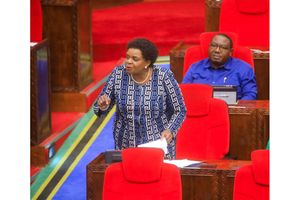Tanzania International Tax Law: Understanding the import taxation regime (1)
Developing countries’ merchandise imports increased by 12 per cent in 2018, says the latest World Statistical Review 2019, which looks into the most recent trends for trade in goods and services. Merchandise imports totalled $7.97 trillion in 2018, according to the report. Developing economies’ imports grew at a faster rate than those of developed economies and the world, with Africa showing double digit growth in 2018.
In the 2019 African Economic Outlook, published by the African Development Bank, East Africa remains the fastest growing region in Africa and one of the fastest in the world. Five of the Africa’s 10 fastest growing economies that are reshaping the continental order are in the eastern region and Tanzania—which is bordered by seven countries: DR Congo, Burundi, Kenya, Uganda, Malawi, Mozambique, and Rwanda—is one of them.
As a dual member of the Southern African Development Community (SADC) and the East African Community (EAC) that is currently mulling the process towards ratifying the African Continental Free Trade Area (AfCFTA), Tanzania offers easy business and trade connectivity to other locations worldwide. Indeed, the country’s biggest port, the Port of Dar es Salaam, provides a critical transit point for cargo from various neighbouring landlocked countries.
In a bid to drive foreign investment, the government is offering tax incentives by way of generous capital deduction provisions for qualifying sectors e.g., manufacturing, agriculture, mining, and petroleum.
Taking the above into account, this new article series starts with a primer on insights into the Tanzanian tax system pertaining to import taxes. Import taxes are imposed on, and paid for, by Tanzanian consumers, not foreign producers. The effect is that foreign goods become relatively more expensive for Tanzanian consumers. Also, if Tanzanian manufacturers of say fruit juices rely on imported inputs in their production processes, they will transmit the increased cost to Tanzanian consumers.
Import taxes are therefore an integral part of our daily lives. That’s even more true when you consider that Tanzania is a net importer of goods as indicated by the country’s overall balance of payments, which was in deficit, according to the Bank of Tanzania Monthly Economic Review of December 2019. In short, the impact of import taxes is felt by every Tanzanian consumer in the prices of goods in the local market, be it the Kariokoo market in sunny Dar es Salaam or the Mwanjelwa market in green-hilly Mbeya.
Tanzania’s import taxation regime comprises of an import duty, ranging from 0 per cent to 25 per cent, depending on the import in question (note, however, that some sensitive items are charged at a higher rate than 25 per cent to protect domestic industries); an excise duty, which is charged on specific goods and services manufactured locally or imported on varying rates, depending on the good or service in question; and Value Added Tax (VAT) on importation of ‘taxable imports’ into Mainland Tanzania at the rate of 18 per cent. The value of imported goods is determined in accordance with the Value Added Tax Act, 2014 and the East African Community Customs Management Act, 200).
We shall delve into each of these import taxes in the coming articles of this column.
In the process we shall consider the procedure to which imports are subjected, including the requirement for the importer to make a declaration through a licensed clearing and forwarding agent in order to clear goods online via the Tanzania Customs Integrated System (TANCIS) for importations to Mainland Tanzania and ASYCUDA++ for importations to be made through Zanzibar.
We shall also discuss some of the most important issues in transportation documents, namely the bill of lading, the airway bill, and the road consignment note.
Not to forget Tanzania’s implementation of the Electronic Cargo Tracking System (ECTS). Briefly, the ECTS is used to monitor the movement of goods under customs control in Tanzania. It is not free of charge, though. The cost of the ECTS is borne by the transporter.
As a parting shot for this primer, it is important to note that not all imports are liable to import duty, excise duty, or VAT, as the case may be.
Some imports are relieved from these taxes under statutory exemption provisions. We hope that this new article series on Tanzania’s import taxation regime will give you a better understanding of the mechanics of import taxes and the customs process applicable to imports of goods to Tanzania. As alluded to earlier, imported goods play a big part in our daily lives, and so are the import taxes.
------------------------------
Paul Kibuuka is the Tax Director and Chief Executive of Isidora & Co. The views expressed here do not necessarily reflect those of Isidora & Co




